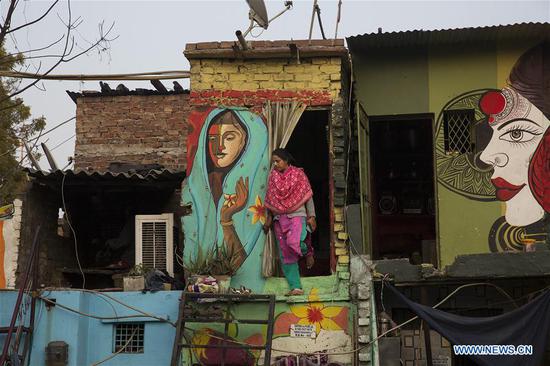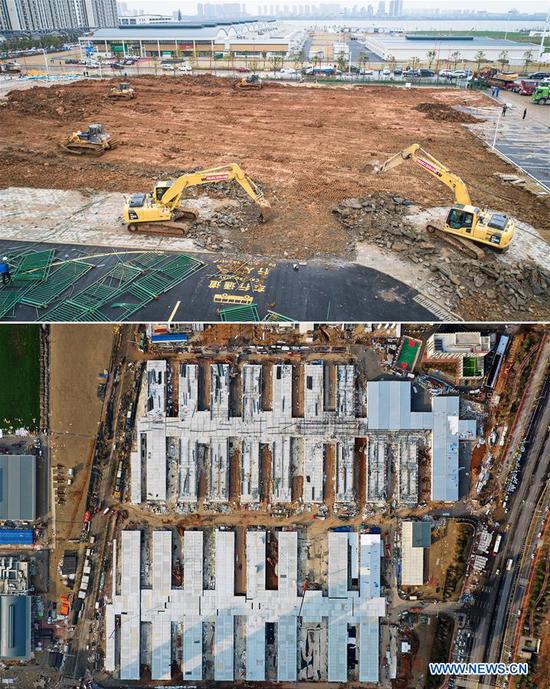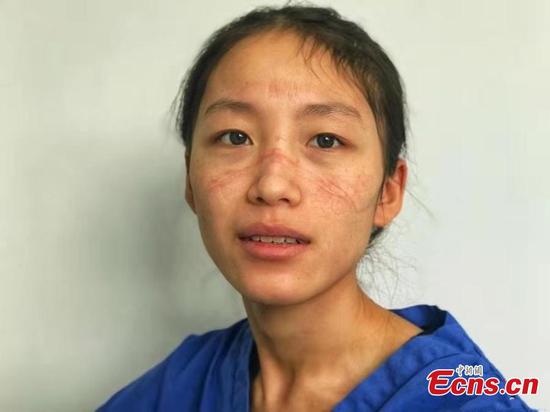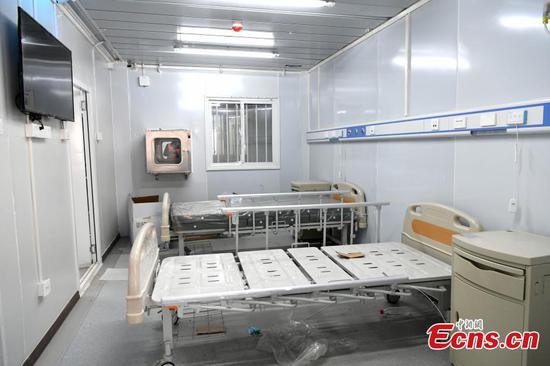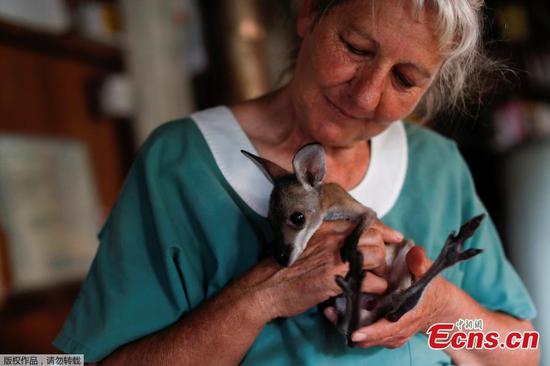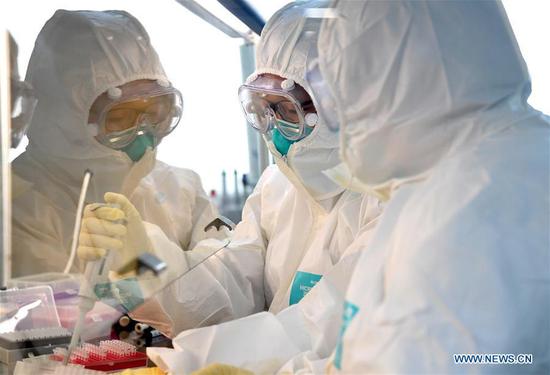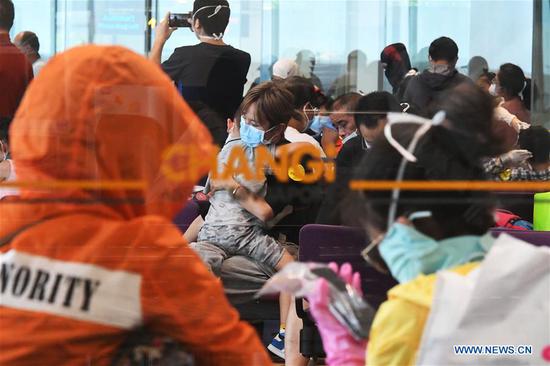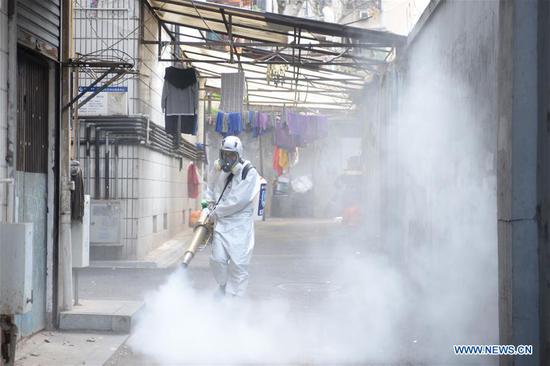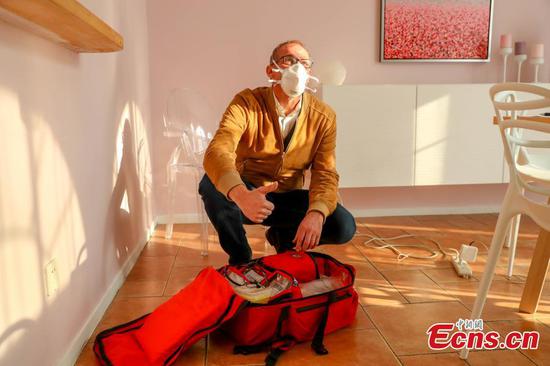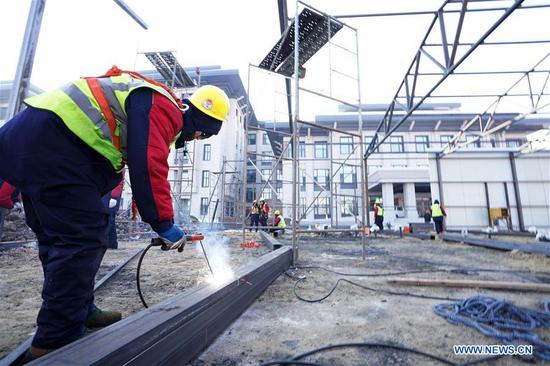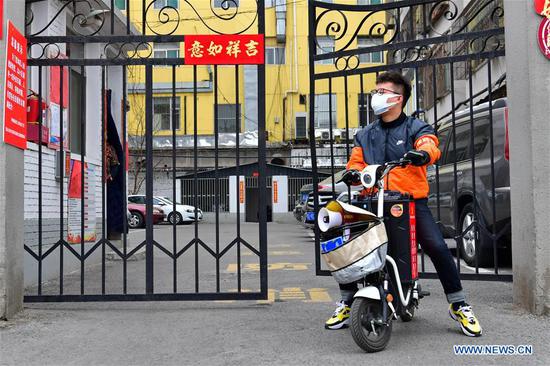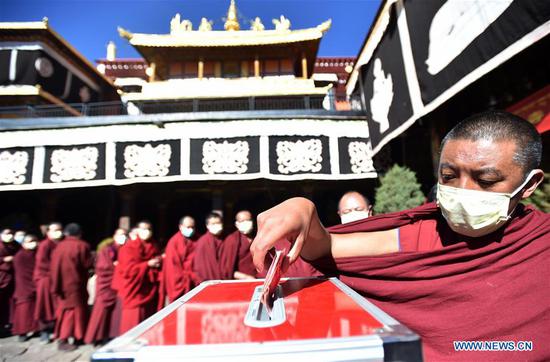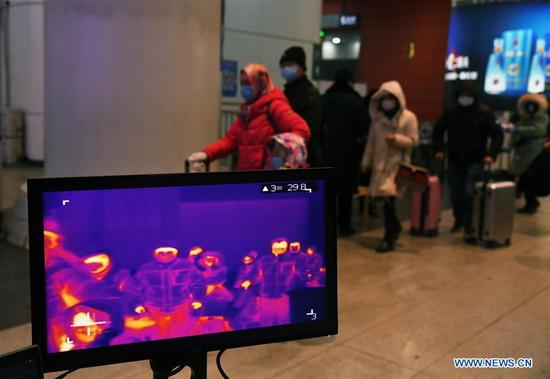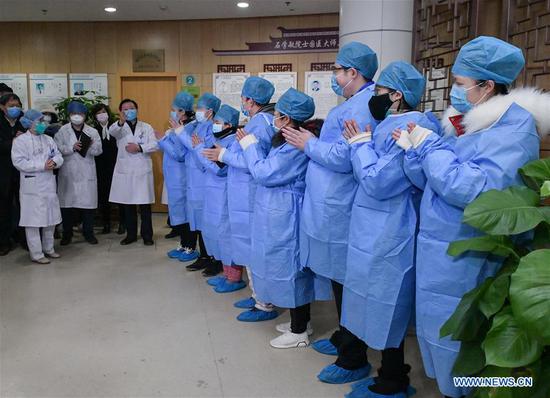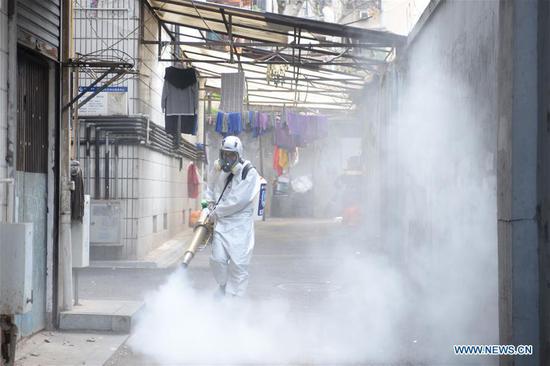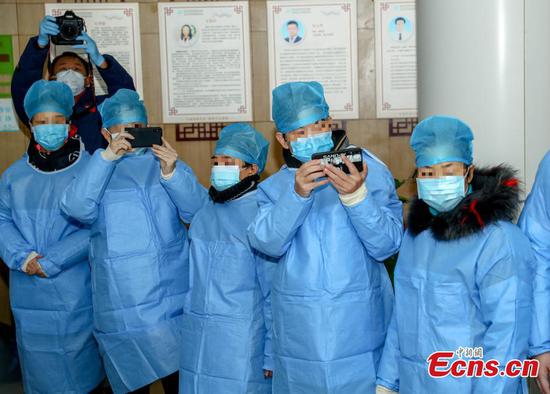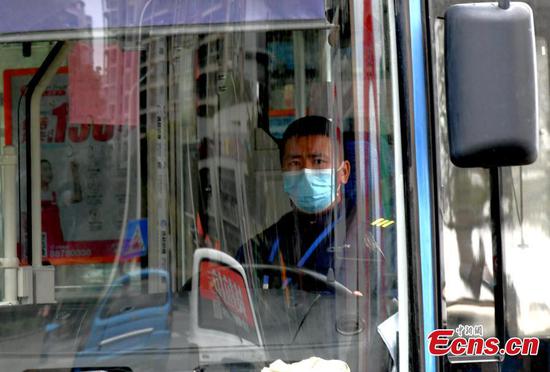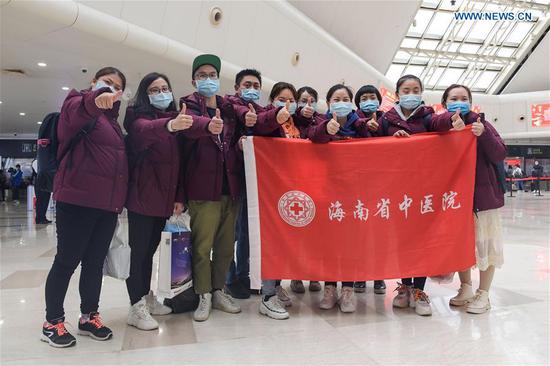Transforming existing venues, such as gymnasiums, into temporary hospitals is an effective way to reduce infection in the Chinese city of Wuhan, as it is grappling with a surging number of patients infected with the novel coronavirus, an official with the National Health Commission (NHC) said Friday.
"The biggest problem we are facing in Hubei Province, Wuhan in particular, is the discrepancy between the rise in the number of patients and the limited medical resources," said Guo Yanhong with the NHC at a press conference.
The operation of makeshift hospitals with a large number of beds is aimed at maximizing the capacity for accepting and treating patients and avoiding virus transmission in households and communities, Guo added.
Wuhan, the epicenter of the novel coronavirus outbreak, has added some 10,000 hospital beds by converting its public venues such as gymnasiums and exhibition centers into temporary hospitals to attend to people with mild symptoms. They can receive basic medical care there and will be transferred to standard hospitals if their conditions worsen.
Mobile P3 laboratories and more than 2,000 medical staff from across the country are tasked with testing and treating patients at these temporary hospitals, Guo said, adding that clinical psychologists are also among the medics to provide psychological counseling for the patients.
In response to public doubts about possible cross-infection at the large-scale makeshift hospitals, Guo noted that all patients there are confirmed cases, and medical teams specialized in transmission control also provide guidance on the spot.
As of Thursday, Wuhan had 11,618 confirmed cases of the novel coronavirus infection, according to the Hubei Provincial Health Commission.










